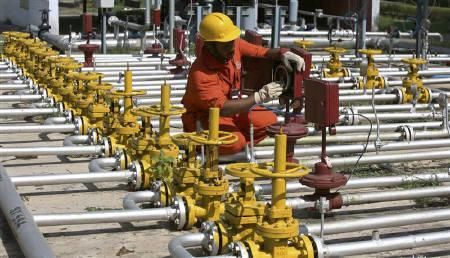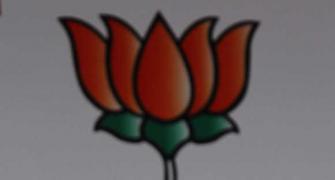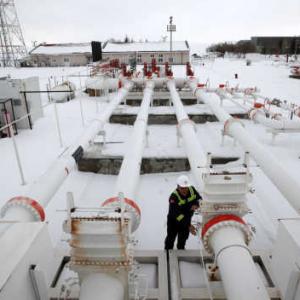 It might not be profitable to tap much of India’s gas reserves in deep water at the government notified price of $5.6 per mBtu (million British thermal units), according to experts.
It might not be profitable to tap much of India’s gas reserves in deep water at the government notified price of $5.6 per mBtu (million British thermal units), according to experts.
The government recently announced a new formula for determining the price of natural gas, lowering it from $8.4 suggested by the C Rangarajan committee.
IHS-CERA, an international consultant that has mapped India’s geological basins, reckons India’s onshore gas is economical to develop at $6-8 per mBtu but reserves in deep and ultra-deep water would need prices of $10-12 for commercial exploitation.
It estimates 25 trillion cubic feet of gas (14 in shallow, 10 in ultra-deep and one in shallow) is profitable at $10, while another 25 TCF (12 in deep, 12 in ultra-deep and one in shallow) is only viable at $12.
The government has announced a premium over the confirmed price for all future gas discoveries in deep water on merit but the industry and experts feel lack of clarity on the premium will inhibit exploration.
A recent ICRA report suggests unless the premium is $4-6, most of the upside gas potential in the country will not be viable. Higher prices on merit, the experts feel, also allows the government avoidable discretion.
On the earlier announced price of $8.4 per mBtu, industry experts say, the charge that the inclusion of Japanese prices ($16) had pushed up the price is not justified.
The Rangarajan committee’s price is an average of international hub prices and netback prices received by international producers on Indian imports.
The first part of the formula is the volume-weighted price available to producers in exporting countries less transportation and processing charges for Indian liquefied natural gas imports for the trailing 12 months and the second part is the volume-weighted price of the US’s Henry Hub, the UK's NBP and Japan Custom Cleared (on netback basis, since it is an importer) prices for the trailing 12 months.
The accompanying table shows even though the price of gas in Japan is $16, after removing liquefaction and treatment costs, it adds only 31 cents to the Rangarajan committee price because the country has a weight of 2.5 per cent in total costs.
The new formula is, instead, focused on prices in key gas markets. These include the Alberta Hub and Russian gas prices but excludes Japan. The price derived from the volume-weighted average price of gas in the US (Henry Hub), Canada (Alberta Hub), Europe (NBP), and Russia, is estimated to be $5.6. However, this does not include transportation and treatment charges, which add up to $3-4.
An industry expert points out the government has addressed the issue of different prices for onshore and offshore gas. While onshore gas may be viable at $5.6, the expert says, but the premium for future finds will be critical for deep water gas that needs a higher price. In his view, the new price will increase gas production in the country marginally.
The logic of importing gas at $14 and denying higher prices to domestic producers is inexplicable, say industry experts.









